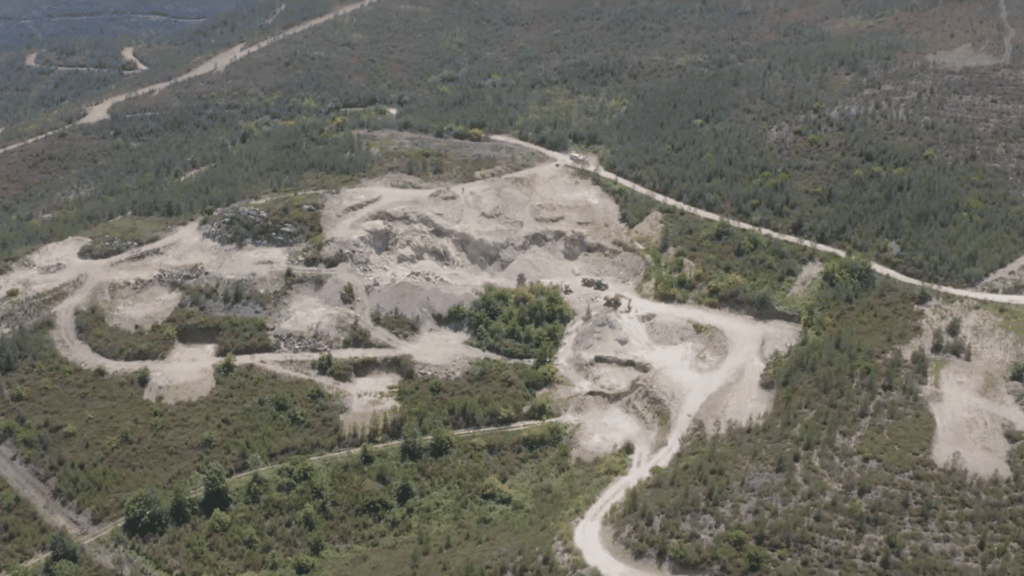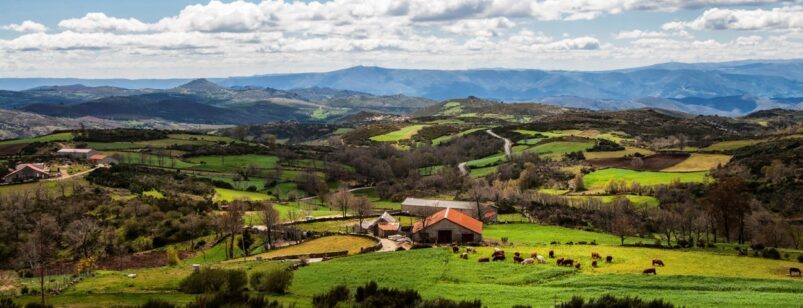In the battle against climate change, the EU aims that by 2030 a third of all newly sold cars are electric. An ambitious plan, but not impossible. Since Portugal holds large lithium reserves, a mineral needed for making electric car batteries, the future for Europe’s energy transition looks set. However, residents are unhappy with the “green” mining projects in their backyards, as the mines are polluting and destroy the environment and local heritage.
Lissabon planned to build three massive industrial complexes across Portugal to exploit the country’s lithium reserves. But one of the areas, the northern Barroso region, is marked as a United Nations protected agricultural heritage site. So why do Portugal and the EU want to build a mine on a heritage site in the first place? And what does this mean for the future of European heritage?
White gold
To combat the climate crisis, the EU hopes that 35% of newly sold vehicles will be electric or fuelled by other zero-emission technologies by 2030, Reuters reported. That is why Lithium has become a crucial mineral, as it forms the central component in new-generation batteries. No wonder the former European Commissioner for Energy Maroš Šefčovič called lithium “the new white gold” during his administration.
Green mining doesn’t exist, Politicians need to stop trying to get rid of pollution in cities by polluting our villages instead
Activist Armando Pinto
Despite the mineral’s potential in creating sustainable energy sources, Europe is struggling to get hold of it. The continents current lithium supply comes from Australia, China or Chile. A solution could be Portugal’s extensive lithium reserves, located in the rural northern and western areas.
Collective heritage
While building three lithium mines might look “green and sustainable” on paper for Portugal and Europe, the practice turns out different. “Green mining doesn’t exist”, explains local activist Armando Pinto to Politico. “Politicians need to stop trying to get rid of pollution in cities by polluting our villages instead.” He is concerned about the mines’ destructive impact on the environment, local economies, and in Barroso international heritage. (Text continues below image)

The pollution of a lithium mine could seriously threaten the so-called Barroso’s Agro-sylvo-pastoral System. The local agricultural system is recognized as a Globally Important Agricultural Heritage System, according to the Food and Agriculture Organization of the UN’s website. Because of its agrobiodiversity, landscape and the tradition of collective sharing of livestock, the region forms a unique agricultural heritage site.
The rural area counts few residents, but almost all oppose the lithium mine project, Euronews reported. The consequences of lithium mining can be very polluting, Wired reported already in 2018. Pinto believes that a lithium mine in the Barroso region would make farming impossible, destroy the distinct landscape and pollute water reserves. “Most of northern Portugal drinks water that comes from here”, he underlines the importance of Barossa’s environment.
The environmental and heritage destruction caused by a mine could endanger access to EU farming subsidies as well. The area needs these funds to survive and to protect its traditional way of farming. Check out the Euronews’ video report below to hear what locals have to say about a potential lithium mine in their backyard. (Text continues below video)
Remarkable situation
Residents breathed a sigh of relief when the Portuguese government recently revoked the Barroso mine project’s concession license due to “a lack of professionalism” from the exploitation company. However, a British company is now looking to expand the original project and “to become the first significant lithium producer in Europe”, according to their website.
The enthusiasm to exploit Portugal’s lithium reserves seems to overlook the protected status and uniqueness of the Barroso’s agricultural heritage. A remarkable situation, considering the launch of EU initiatives such as the New European Bauhaus. This platform aims to incorporate heritage as an integral part of Europe’s green future. The controversy around Barroso’s lithium mine shows that uniting heritage and a green future is not as easy as one might think at first sight.
Source: Euronews, Politico, Reuters, United Nations and Wired
Read more about heritage and climate change or check out one of the tags below:

